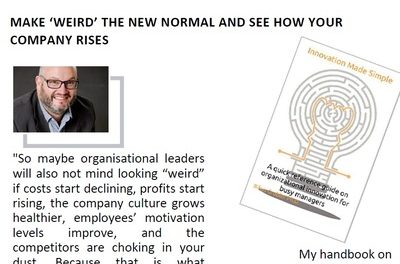
Valuable guidelines to help prepare yourself for a job interview

By Chantelle Reid, Bank Windhoek’s Recruitment Manager.
After applying for a position, you finally receive that call which says: ‘You have been shortlisted for the position. Please join us on this date for an interview.’ This in itself is a big achievement. So what do you do? You prepare for it to increase your chances of getting hired.
Preparing for an interview primarily means taking the time to consider thoughtfully your goals and qualifications relative to the position and the potential employer. To help you ace the interview, take a look at the tips below:
• Research the company: While recruiters do not expect you to know every single detail about the company, you are expected to know the basics. The company profile, usually found on websites, should give you all the information you need. If possible, find out to whom you will report.
• Examine the vacancy and its key performance areas: You may want to ask whether the company is willing to share the job description with you during preparation. Even if they do not, the advertised vacancy is usually a good indication of the job’s requirements.
• Dress appropriately: Make sure your clothes are clean, neat and suitable for the job.
Ladies, knee length dresses or fitted pants with a top, which does not reveal too much cleavage is perfect. Be conscious of the shoes you wear. If you can not comfortably walk in high heels, do not wear them, but rather opt for something shorter and sturdier.
Gents, fitting pants and a button shirt with matching shoes are a good choice. Please wear socks. Ties are not essential unless the job level requires it. Your clothes must be comfortable and fit well.
Look presentable. Also, your safest option is neutral colours. You can add a splash of bright colours in the form of a scarf for example, but nothing that could draw the attention away from you.
• Prepare your travel arrangements: Once you have a confirmed interview time and date, make sure you know how to get there, and how long it will take. If you are going with your own car, be mindful of challenges with parking, especially if the company, such as Bank Windhoek’s Head Office, is situated in the Central Business District (CBD) area. If you are using public transport, make sure it is a reliable one. Rather leave earlier and plan extra time for unforeseen delays.
• You hair/beard: Hair should be clean and combed. Ladies, you can also tie your hair up neatly. Gents, beards should also be clean and well-trimmed.
• Makeup/jewellery: Makeup should be modest and your jewellery should not be too big or distracting. Refrain from wearing jewellery that makes a jingly sound every time you move.
• Cell phones: There is no excuse for your phone buzzing or ringing during your interview. To be safe, switch it off hours before the interview, or leave it at home.
• References: Contact your references listed on your Curriculum Vitae (CV) the moment you are invited for an interview. Inform them of what position you applied for and where, so that they can prepare accordingly.
• Your CV and supporting documents: Prepare a copy of your CV and all your supporting documents to take to the interview. Make sure your documents are in a neat folder and in a chronological order.
• Relax: To remain calm, practice taking deep breaths and formulate possible answers to questions you think will be asked.
The biggest mistake some shortlisted candidates make at this stage of the recruitment process is to think that they do not need to prepare for an interview. This is the worst thing you could do and will most certainly jeopardize your chances of getting that job. Remember, planning is key and will make you feel more relaxed and ready.












































